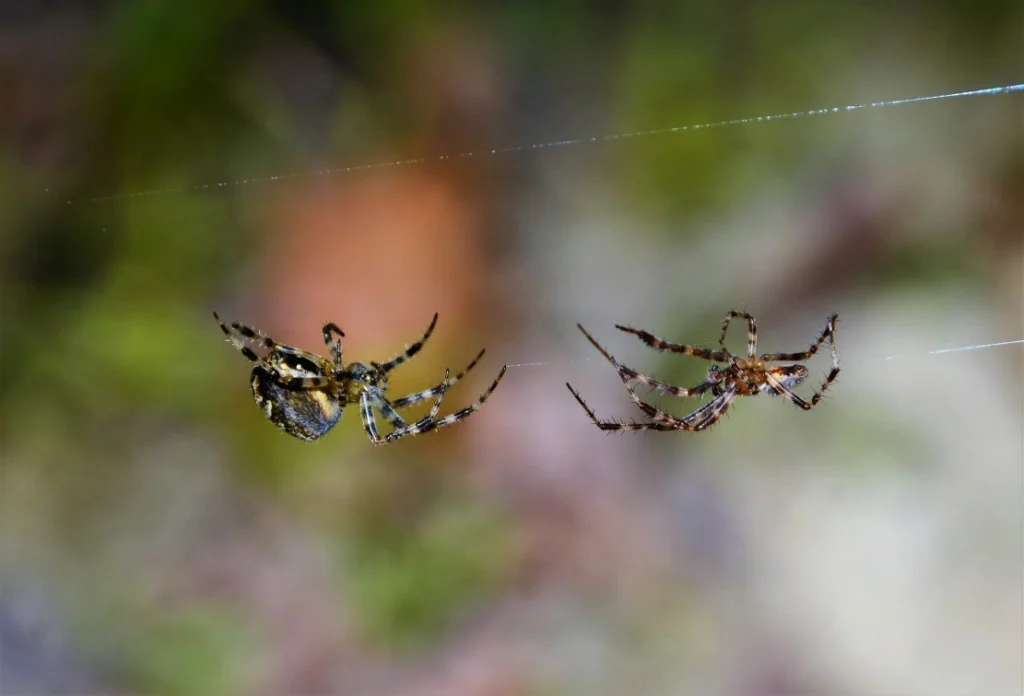Spiders, while beneficial in outdoor ecosystems, are seldom welcome guests inside the home. For many of us—especially those who enjoy a well-kept, peaceful living space—finding one crouched in the corner of the ceiling or scurrying across the bathroom floor can be unsettling. If you’ve found yourself constantly reaching for a tissue or calling for help every time you spot one, it's time to take control. Learning how to keep spiders out of your house can restore comfort and prevent future encounters.
Whether you're trying to ward off the occasional lone wolf or experiencing a more persistent intrusion, a mix of understanding spider behavior, preventive maintenance, and natural techniques can make your home far less inviting to these eight-legged intruders.
What Attracts Spiders Inside the House?
Before we can fix the problem, we have to know why it’s happening. Spiders don’t enter our homes randomly; our behavior, household habits, and even landscaping choices sometimes work against us. Here’s what draws spiders in:
- Food source: Spiders thrive in environments rich in smaller insects like flies, ants, and gnats. If your home has a bug problem, it’s likely to also have a spider problem.
- Warmth and shelter: As temperatures drop, especially in the fall and winter, spiders look for cozy places to survive the chill.
- Cluttered spaces: Stacks of newspapers, cardboard boxes, or rarely-used corners of closets create hiding spots for spiders to spin webs and lay eggs.
- Moisture: Areas with high humidity, such as basements, bathrooms, and kitchens, attract both insects and spiders.
Seal Off Entry Points
One of the most effective steps in how to keep spiders out of your house is making it difficult for them to come in to begin with. Spiders can sneak in through cracks, crevices, and tiny amounts of space. Here's how to reduce that risk:
- Inspect windows and doors: Check for any gaps around window frames and door jambs. Fix weather stripping and add caulking where needed.
- Install door sweeps: Gaps at the bottom of exterior doors are welcome mats for spiders. A door sweep can block these entryways instantly.
- Seal vents and other openings: Dryer vents, attic fans, and plumbing entry points can all allow access. Using fine mesh screens or foam sealants can safeguard these vulnerable spots.
- Repair damaged screens: Even a pencil-sized hole in a window screen gives spiders a front-row ticket into your home.
Tidy Up Indoor Spaces
Spiders seek out calm, quiet spots to nest and find their food. A cluttered home, even if neatly arranged, offers many hiding places. Decluttering is not just for aesthetic appeal—it’s also a potent deterrent.
- Vacuum regularly: Especially corners of ceilings, behind furniture, under beds and along baseboards where webs often appear.
- Minimize cardboard usage: Spiders love the texture and shelter that cardboard provides. Opt for plastic storage bins instead, particularly in basements and closets.
- Keep corners clear: Spiders are drawn to dark, unused areas. Keeping spaces open and well-lit helps discourage them.
- Dispose of waste promptly: Empty garbage cans often, particularly those in the kitchen and bathroom where food particles or moisture attract spiders' prey.
Manage Outdoor Areas Wisely
Your outdoor environment plays a significant role in influencing what comes indoors. Landscaping choices and where items are placed around the house can be a subtle invitation. Keeping the perimeter tidy is key to how to keep spiders out of your house.
- Trim back vegetation: Trees, shrubs, and ivy that press against the siding offer a direct bridge from the outdoors to your walls and windows. Keep plants at least 18" away from the house.
- Move firewood stacks: Piles of wood are classic spider harbors. Store wood at least 20 feet from your home and off the ground.
- Use yellow outdoor lights: Bright white bulbs attract all sorts of insects, multiplying a spider’s food supply. Yellow bug lights can greatly reduce insect (and thus spider) activity near doors.
- Inspect patios and porches: Brush away webs and inspect outdoor furniture frequently. Areas under deck rails and chairs often serve as perfect lurking spots.
Natural Spider Repellents You Can Use Today
You don’t have to coat your home in chemicals to help with how to keep spiders out of your house. There are natural options that are both effective and safe around pets and children. Many of these options also make your home smell fresher.
- Peppermint oil: Spiders avoid strong scents like peppermint. Mix 15–20 drops of essential oil with water in a spray bottle and spritz baseboards, corners, windowsills, and under furniture.
- Vinegar: White vinegar contains acetic acid, which is harmful to spiders. Mix equal parts water and vinegar, and apply it just like peppermint essential oil. Avoid use on sensitive surfaces like natural stone.
- Citrus peels: The citrus scent of lemon, lime, or orange peels deters spiders. Rub the peels along baseboards and entryways.
- Cedarwood: Spiders detest cedar, so using cedar blocks or essential oils is another safe approach for furniture drawers, closets, and basement shelves.
- Chestnuts or horse chestnuts: While the evidence is mostly anecdotal, many swear by placing these in room corners to repel spiders.
Keep Insects at Bay to Reduce Spider Food Sources
If you're truly invested in how to keep spiders out of your house, you’ll need to keep their favorite cuisine off the menu. Eliminating flying and crawling bugs reduces the attraction for spiders to move in.
- Fix leaky pipes and reduce standing water: Mosquitoes, ants, and their like all thrive in moisture-rich environments.
- Use screens and keep doors closed: Flying bugs often enter through windows and doors during warmer months, which spiders soon follow.
- Clean up spills and crumbs immediately: An ant infestation can spring up quickly if food waste isn’t managed, and that’s basically an all-you-can-eat buffet for spiders.
- Check out our simple guide for natural ant control solutions in the kitchen to help manage this.
Consider Modest Home Improvements
Some steps may require a little more effort but provide long-lasting results that contribute to overall spider control:
- Swap heavy curtains for blinds that are easier to clean and don’t trap dust or webs.
- Replace carpeting in rarely used rooms with tile or wood flooring which is easier to keep clear of bugs and webs.
- If you’re doing other upgrades, consider changes inspired by our stunning beamed ceiling ideas that can change the light quality and reduce dim hiding spots.
When to Seek Professional Help
Sometimes, despite every effort, spider infestations persist. Signs like frequent web appearances, egg sacs, or visible spiders day after day could signal a deeper issue.
A licensed pest control provider can help identify the species you’re dealing with and determine whether there’s an infestation. For households with older architecture, heavy landscaping, or crawlspaces, professional input can make all the difference.
What to Do After Seeing a Spider
Choosing how to respond when you do see a spider is part of maintaining peace at home.
- If it's harmless, remove it using a cup-and-paper technique and release it outdoors.
- Vacuum up webs and egg sacs to break its habitat.
- Avoid squashing indoors if possible—especially with large spiders—as they can carry eggs that could spread.
Final Thoughts
There’s peace of mind in knowing how to keep spiders out of your house. Your home should feel like a safe and serene space, not a battleground for unwanted pests. Through a combination of sealing entry points, decluttering thoughtfully, managing moisture, and applying natural repellents, you can make your home less inviting to spiders without disrupting the balance of nature outside.
As someone who values a home that feels just right—every corner serving comfort, every light switch flipping on calm—I believe prevention starts with small, consistent actions. So next time you set your favorite throw pillow on the armchair or reach for a gardening book, you’ll know: you’ve done what it takes to keep those spiders where they belong—outside.



